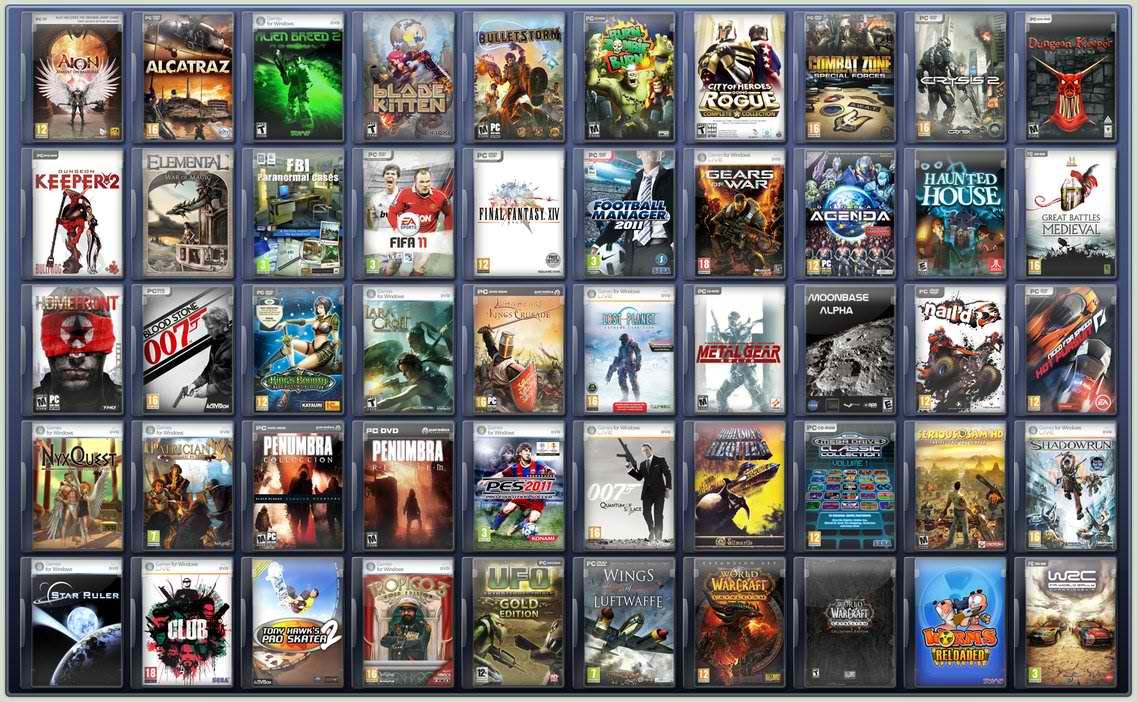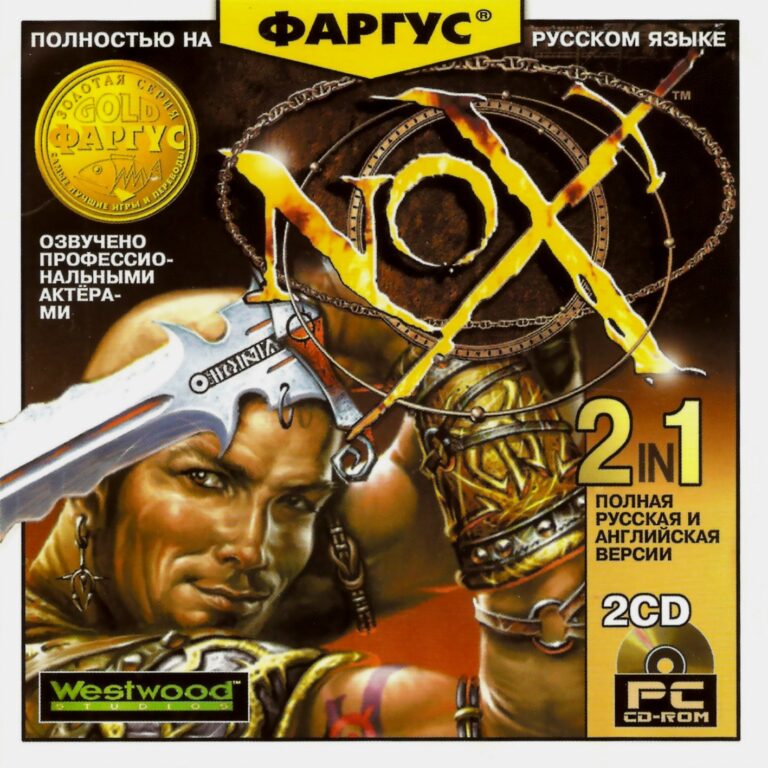Maintenance instead of remastering. How to save old PC games on a new OS

There are more than a million computer games in the world. And every year thousands of new games are released. But sometimes you want to feel nostalgic for a bygone era and play some game from twenty years ago on your PC. Popular old games are being updated, remade and remastered. But what if the game was not so popular to have an updated version with modern software? Will such games really be lost?
Old PC games may not work on new computers for several reasons. One of the main reasons is that new operating systems and hardware often do not support the old technologies on which games were created. For example, some games may require certain versions DirectX or other libraries that are no longer included in new operating systems. Additionally, games designed for older hardware may not be able to take full advantage of more powerful hardware on newer PCs. Some games can be made to work using emulators or compatibility modes, but this is not always possible or reliable.
Many old video games have been lost to time because they don’t sell and therefore the developers don’t maintain them. But there are enthusiasts who have been keeping old games running for many years by porting them to Linux. This gives developers a reason to think about “support” games, and not about “remasters”.
❯ Happiness is such a thing…
Historically, video game preservation efforts have typically spanned two types of games. The most common are very old games from the 16-bit era or earlier. Others are games that rely on live service, such as now-disabled servers
or any other games that can only be obtained by downloading them through the channel
which closed in 2019.
But time moves on and it is now necessary to look at the later era of gaming if we still want these games, especially indie games, to be available. We don’t think about it until the games, most of which we downloaded on Windows 7, stop working on a Windows 11 computer without any maintenance, and are already re-released.
Typically, when video game developers talk about re-releasing old games, they talk about “remasters,” reproductions that not only update the graphics or gameplay, but also reimagine the entire concept of the game. As a result, sometimes remasters are not just old games in a new wrapper, they are completely different games.
One of the problems with older games is that a modern PC doesn’t have the same supporting hardware (like game controllers). Fortunately, it is possible to emulate older hardware in software. The video display is also very different. Emulate old video standards C.G.A. And VGA It’s not difficult, but a much lower resolution can look quite strange on a modern monitor (320×200 with 4 colors doesn’t look very sharp). In older versions some things may work, but to get them to work you need to emulate the MSDOS operating system correctly. Windows has had a compatibility mode and emulation tools for a long time (since Windows XP) such as DosBox.

Sometimes older games have bugs that require fixes (software updates) in order for them to work correctly on new computers. In other cases, gamers may have to work hard to find workarounds to get games to work. If no one else has done the necessary work before, it can be very difficult to do it yourself.
❯ He who seeks will always find… if he searches correctly
Ethan Lee aka
is engaged in porting games for
, as well as various ports of Linux games. Lee offers servicing of games and ports for Linux, Windows, Xbox (One, Series X|S), Nintendo Switch and macOS using x86_64. Lee demands payment for his services, of course, but he also demands that clients have their own port of the game available for Linux, and even if this is not the case, Lee is willing to make one.
FNA is a re-implementation of libraries Microsoft XNA Game Studio 4.0 Refresh. FNA was developed by Ethan Lee, who has released over four dozen game ports XNA. You can also see several examples of games Steam using FNA. Among the indie games Lee has ported are: Super Hexagon, Thirty Years of Loving, Proteus, Rogue Legacy, Dust: An Elysian Tail, TowerFall Ascension, VVVVVV, Transistor, Wizorb, Mercenary Kings, Hacknet, Shenzhen I/O And Bastion.

Thirty Flights of Loving
The goal is to preserve the XNA game library while redefining XNA itself with a focus on accuracy. Ethan and his team want to recreate XNA as Microsoft created it, while ensuring a seamless experience on all target platforms. They don’t use game-specific hacks in their code.
Since FNA is focused exclusively on completely open platforms, the main focus is on PC. To this end, FNA supports Windows, macOS and GNU/Linux with a single build file. Conditionals are not used preprocessor for platforms; The platform model requires that a library be created that runs on any platform, regardless of where it was created. When you create an FNA game using Visual Studio, you can expect it to run on Windows, Mac, and Linux with the same set of output builds. In addition, FNA supports iOS, tvOS, Xbox (One, Series S|X), Nintendo Switch and Google Stadia (closed in 2023).
Lee and his team came up with this project by working with Humble Bundle, a company founded in 2010 that sells indie games. Humble Bundle asked PC game developers to also make their games available on macOS and Linux. Lee had some experience with the latter when he ported a small game called Waveform on Linux.
As in the days of the Humble Bundle, there is only one explicit requirement for a game to qualify for support and maintenance: it must have its own version of Linux available to customers. If developers don’t have one, Lee suggests making one as part of their service. This is the environment in which he is most comfortable developing, but since Linux is open source, it is easier to maintain Linux versions of games. Instead of waiting and hoping for whatever solution Microsoft comes up with to make older games run on new versions of Windows, the open source community can create its own. It’s also a much more attractive proposition now that Steam has a Linux platform SteamOSwhich has a special Steam Deck device.

The developers strictly use free and open source software in FNA. The authors of the FNA project do not want to be a tool for patented products; they allow all users to be free to do whatever they want with their software, which they use to implement what they feel is important to save XNA games. While it’s certainly possible to use FNA to work with closed platforms and technologies, developers don’t want to impose these restrictions on the development process.
❯ The game is worth the candle
Often people think that the only way to take a game to the next generation is to do a big remaster. That’s cool, but wouldn’t it be cool if there was a cult
continued to work from 1997 to the present without all these restarts?

The PC catalog has grown enormously over the past 15 years, and even small independent studios now have a vast catalog of games that players can technically still buy and play today. However, this comes at a cost: the longer a studio exists, the larger its catalog becomes, and, as a result, the maintenance load increases.
As for the Xbox 360 game, it is only available as long as you have a working Xbox 360 console, unless you create another version of it for another platform. On the PC side, people are speculating that if the game comes out on Windows, it can live forever in future versions of Windows. There’s a huge amount of stuff packed into a PC: there’s an x86 processor, modern era GPUs, as well as an operating system and various drivers. And changing any of these layers can cause the game to run poorly or not work at all.
IN viral video describes in detail how many computer games from Rockstar Games work poorly or break completely because they were not properly ported to new operating systems. Sometimes the official versions of these games on Steam are actually hacked versions because the pirate community does a better job maintaining them than one of the largest video game publishers in the world.
It’s crazy to think that large volumes of digital art created throughout history would be lost to time without such complex preservation work, and there are too few knowledgeable people and organizations that have the time and resources to do this. Microsoft, to its credit, has tried to maintain the legacy of Xbox gaming by providing backwards compatibility on Xbox One and Xbox Series X|S, but they don’t support every game and it looks like they never will.
Considering that many older games don’t work, and most developers don’t have the time or resources to support their older games, it seems like a good plan to hire someone from the outside to update some of your older games for the few people who still want to play them, and for future generations. Think of a game from your youth that you can’t play, and then imagine a child today who has never played it, and then imagine a game released in the last few years that could suffer the same fate if someone doesn’t will work on her support.





